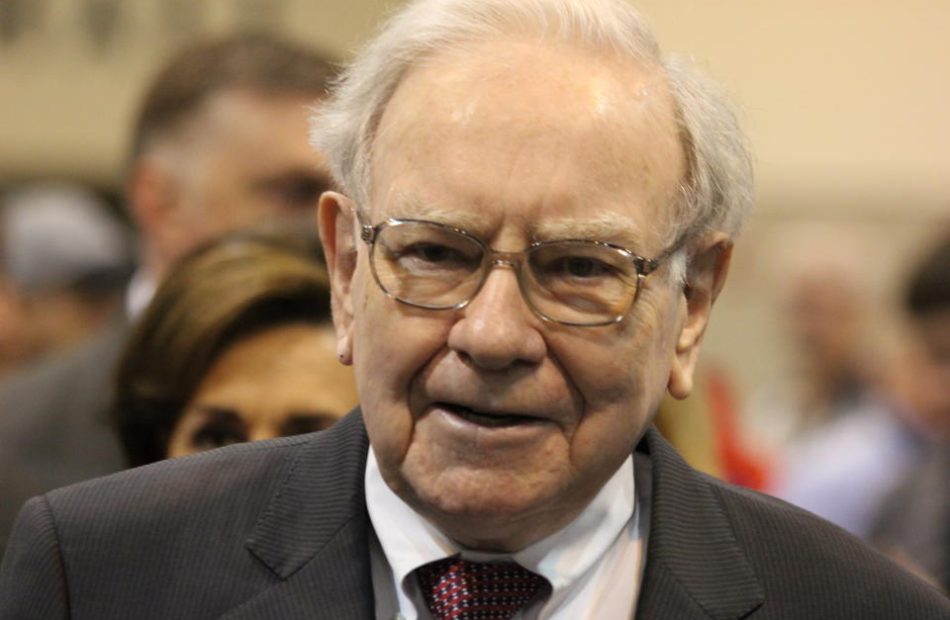Tesla announces plans to launch full self-driving technology
Tesla plans to launch full self-driving technology in China and Europe in the first quarter of next year.
The advanced driver assistance system is currently pending regulatory approvals with the Tesla X account announcing upcoming technology launches.
Tesla made strides gaining approval for the Chinese market after passing data security assessments and reaching a mapping and navigation deal with Chinese tech giant Baidu.
Elon Musk’s company also got the nod to test fully autonomous technology in Shanghai’s streets, with the latest announcement signalling that the company is on track to gain permission from Chinese state authorities for the technology.
Chinese approval for Tesla’s full-self driving technology would help the company’s fortunes in the Chinese market.
During the first eight months of this year, Tesla’s China shipments have fallen about 6% compared with last year, according to data from the China Passenger Car Association.
Musk said on an earnings call in July that he expected the Tesla’s full self-driving system to be approved in Europe, China and other countries by the end of the year.
He also wrote on X in April that the roll-out in China “may be possible very soon.”
Full self-driving technology has come under increased scrutiny in the US, however, after a spate of high-profile accidents involving Tesla’s autopilot functionality.
Tesla and many industry experts still recommend that drivers must keep their hands on the steering wheel and pay attention to the road while using the software.
The announcement has signaled that the company is on track to boost sales and stay ahead of Chinese rivals who are also working on similar driver assistance systems.
“Tesla announces plans to launch full self-driving technology” was originally created and published by Verdict, a GlobalData owned brand.
The information on this site has been included in good faith for general informational purposes only. It is not intended to amount to advice on which you should rely, and we give no representation, warranty or guarantee, whether express or implied as to its accuracy or completeness. You must obtain professional or specialist advice before taking, or refraining from, any action on the basis of the content on our site.
American Healthcare REIT to Participate at BofA Securities 2024 Global Real Estate Conference
IRVINE, Calif., Sept. 5, 2024 /PRNewswire/ — American Healthcare REIT, Inc. AHR (“Company”) announced today that Brian Peay, the Company’s Chief Financial Officer, Gabe Willhite, the Company’s Chief Operating Officer, Stefan Oh, the Company’s Chief Investment Officer, and Alan Peterson, the Company’s Vice President of Investor Relations & Finance will participate in a roundtable presentation at BofA Securities Global Real Estate Conference on Thursday, September 12, 2024, at 10:20 a.m. to 10:55 a.m. Eastern Time. A live webcast of the presentation will be available at the following link. A replay will be available at the same link following the completion of the conference on September 12, 2024 for up to one year.
About American Healthcare REIT, Inc.
American Healthcare REIT, Inc. is a self-managed real estate investment trust that acquires, owns and operates a diversified portfolio of clinical healthcare real estate properties, focusing primarily on outpatient medical buildings, senior housing, skilled nursing facilities and other healthcare-related facilities. Its properties are located in the United States, the United Kingdom and the Isle of Man.
![]() View original content to download multimedia:https://www.prnewswire.com/news-releases/american-healthcare-reit-to-participate-at-bofa-securities-2024-global-real-estate-conference-302239638.html
View original content to download multimedia:https://www.prnewswire.com/news-releases/american-healthcare-reit-to-participate-at-bofa-securities-2024-global-real-estate-conference-302239638.html
SOURCE American Healthcare REIT, Inc.
Market News and Data brought to you by Benzinga APIs
© 2024 Benzinga.com. Benzinga does not provide investment advice. All rights reserved.
Ask an Advisor: With 2 Homes and $600k in Assets, Is a Trust or Will the Right Move for My Estate?
SmartAsset and Yahoo Finance LLC may earn commission or revenue through links in the content below.
What is the benefit of having a trust versus a will? We own our home, have a rental property and we have no debt. My husband and I are retired and both have IRAs, over $500,000 in the stock market and approximately $100,000 in CDs. We have three grown children – one is a stepchild. We currently have a will but are wondering if a trust is a better option.
– Judith
This is a good question that many people don’t stop to ask. Each has its purpose, and whether one of them is better for you – or if you should have both – is a matter of what you want to happen to your assets when you die.
Both a will and a trust can dictate the distribution of your assets, but there are key differences that might help guide your decision. There is much more to estate planning than the basics of wills and trusts, so I strongly recommend you consult with an estate planning professional for specific advice. (And if you’re looking for a financial advisor, consider finding one specifically with estate planning expertise.)
What Does a Will Do?
A will provides instructions to your heirs and the court for how to distribute any assets you have when you die and how you’d like your general affairs handled. For someone with minor children, you can also appoint a guardian through a will.
A key element is that your will takes effect upon your death. Wills, which are pretty simple and inexpensive to create, are a baseline document that everyone should have. If you don’t have a will, state law will dictate how to settle and distribute your estate. A will can make things much easier on your family. (And if you need help making a plan for your assets and eventual heirs, a financial advisor can potentially help.)
What Does a Trust Do?
Trusts are legal entities that hold assets to be managed by a trustee for the benefit of the beneficiaries. There are many different types of trusts.
A trust can also determine how your assets are distributed at death. However, it does not always require that you pass away to go into effect. Instead, a trust takes effect when you transfer ownership of your assets to it. This can happen before or after you die. You can even fund a trust and receive income from it while you’re still alive.
Trusts do not go through probate, the legal process by which a court validates your will. This means your estate will be distributed in private. It may also expedite the process.
Trusts can also provide you with more control over how and when your assets are distributed. Common examples here are if you want to spread distributions over many years or require your beneficiaries to achieve certain milestones before receiving an inheritance.
This could be very effective for ensuring your beneficiaries receive ongoing support or provide incentives for them to make responsible choices.
For you, this may be something to consider if you think you’ll leave any IRA balances to your kids. If they inherit them directly they’ll likely fall under the 10-year rule, meaning they’ll have to withdraw all the money within 10 years. You may set up a trust to name as the IRA beneficiary, which could then distribute the assets to your children.
Additionally, trusts can reduce the size of your taxable estate and help you avoid paying estate taxes. However, the vast majority of people won’t be subject to estate tax liability, considering this federal levy only applies to estates valued at $12.92 million in 2023 ($25.84 million for married couples). Given your assets, it doesn’t seem like you would be subject to estate taxes. (A financial advisor with estate planning expertise may be able to help you set up a trust or make additional plans for your estate.)
What About Account Beneficiaries?
A simple but important note to be aware of is that any accounts with named beneficiaries will transfer to those beneficiaries regardless of what your other documents say.
This is why it’s very important to review your beneficiary designations periodically, particularly with blended families. Since there is a stepchild in your case, you may want to make sure that your beneficiary designations include (or not include) your stepchild the way you and your husband intend to.
Bottom Line
Everyone should have a will, but some may want or need a trust as well. As with most financial planning decisions, it comes down to your own goals and priorities. If you want additional privacy or would like to set more specific parameters around the distribution of your estate, a trust may be a good addition to your estate plan.
Tips for Finding a Financial Advisor
-
Finding a financial advisor doesn’t have to be hard. SmartAsset’s free tool matches you with up to three vetted financial advisors who serve your area, and you can have free introductory calls with your advisor matches to decide which one you feel is right for you. If you’re ready to find an advisor who can help you achieve your financial goals, get started now.
-
Consider a few advisors before settling on one. It’s important to make sure you find someone you trust to manage your money. As you consider your options, these are the questions you should ask an advisor to ensure you make the right choice.
-
Keep an emergency fund on hand in case you run into unexpected expenses. An emergency fund should be liquid — in an account that isn’t at risk of significant fluctuation like the stock market. The tradeoff is that the value of liquid cash can be eroded by inflation. But a high-interest account allows you to earn compound interest. Compare savings accounts from these banks.
-
Are you a financial advisor looking to grow your business? SmartAsset AMP helps advisors connect with leads and offers marketing automation solutions so you can spend more time making conversions. Learn more about SmartAsset AMP.
Brandon Renfro, CFP®, is a SmartAsset financial planning columnist and answers reader questions on personal finance and tax topics. Got a question you’d like answered? Email AskAnAdvisor@smartasset.com and your question may be answered in a future column.
Please note that Brandon is not a participant in the SmartAsset AMP platform, nor is he an employee of SmartAsset. He was compensated for this article.
Photo credit: ©iStock.com/shapecharge, ©iStock.com/kate_sept2004
The post Ask an Advisor: What’s the Benefit of Having a Trust vs. Will? We Own 2 Homes, Have IRAs and Another $600k in Assets appeared first on SmartReads by SmartAsset.
MEI Investor Alert: Kessler Topaz Meltzer & Check, LLP Urges MEI Investors with Losses to Contact the Firm
RADNOR, Pa., Sept. 05, 2024 (GLOBE NEWSWIRE) — The law firm of Kessler Topaz Meltzer & Check, LLP (www.ktmc.com) informs investors that a securities class action lawsuit has been filed in the United States District Court for the Northern District of Illinois against Methode Electronics, Inc. (“Methode”) MEI on behalf of investors who purchased or otherwise acquired Methode common stock between June 23, 2022 and March 6, 2024, inclusive (the “Class Period”) The lead plaintiff deadline is October 25, 2024.
CONTACT KESSLER TOPAZ MELTZER & CHECK, LLP:
If you suffered Methode losses, you may CLICK HERE or go to: https://www.ktmc.com/new-cases/methode-electronics-inc?utm_campaign=mei&mktm=r?utm_source=PR&utm_medium=link&utm_campaign=mei&mktm=r
Please CLICK HERE to view our video or copy and paste this link into your browser: https://youtu.be/Reeq03UZl0Q
You can also contact attorney Jonathan Naji, Esq. by calling (484) 270-1453 or by email at info@ktmc.com.
DEFENDANTS’ ALLEGED MISCONDUCT:
The complaint alleges that, throughout the Class Period, Defendants made materially false and/or misleading statements and/or failed to disclose that: (1) Methode had lost highly skilled and experienced employees during the COVID-19 pandemic necessary to successfully complete Methode’s transition from its historic low mix, high volume production model to a high mix, low production model at its Monterrey facility; (2) Methode’s attempts to replace its General Motors center console production with more diversified, specialized products for a wider array of vehicle manufacturers and OEMs, in particular in the electric vehicle (“EV”) space, had been plagued by production planning deficiencies, inventory shortages, vendor and supplier problems, and, ultimately, botched execution of Methode’s strategic plans; (3) Methode’s manufacturing systems at its critical Monterrey facility suffered from a variety of logistical defects, such as improper system coding, shipping errors, erroneous delivery times, deficient quality control systems, and failures to timely and efficiently procure necessary raw materials; (4) Methode had fallen substantially behind on the launch of new EV programs out of its Monterrey facility, preventing Methode from timely receiving revenue from new EV program awards; and (5) as a result, Methode was not on track to achieve the 2023 diluted earnings-per-share guidance or the 3-year 6% organic sales compound annual growth rate represented to investors and such estimates lacked a reasonable factual basis.
THE LEAD PLAINTIFF PROCESS:
Methode investors may, no later than October 25, 2024, seek to be appointed as a lead plaintiff representative of the class through Kessler Topaz Meltzer & Check, LLP or other counsel, or may choose to do nothing and remain an absent class member. A lead plaintiff is a representative party who acts on behalf of all class members in directing the litigation. The lead plaintiff is usually the investor or small group of investors who have the largest financial interest and who are also adequate and typical of the proposed class of investors. The lead plaintiff selects counsel to represent the lead plaintiff and the class and these attorneys, if approved by the court, are lead or class counsel. Your ability to share in any recovery is not affected by the decision of whether or not to serve as a lead plaintiff.
Kessler Topaz Meltzer & Check, LLP encourages Methode investors who have suffered significant losses to contact the firm directly to acquire more information.
CLICK HERE TO SIGN UP FOR THE CASE OR GO TO: https://www.ktmc.com/new-cases/methode-electronics-inc?utm_campaign=mei&mktm=r?utm_source=PR&utm_medium=link&utm_campaign=mei&mktm=r
ABOUT KESSLER TOPAZ MELTZER & CHECK, LLP:
Kessler Topaz Meltzer & Check, LLP prosecutes class actions in state and federal courts throughout the country and around the world. The firm has developed a global reputation for excellence and has recovered billions of dollars for victims of fraud and other corporate misconduct. All of our work is driven by a common goal: to protect investors, consumers, employees and others from fraud, abuse, misconduct and negligence by businesses and fiduciaries. The complaint in this action was not filed by Kessler Topaz Meltzer & Check, LLP. For more information about Kessler Topaz Meltzer & Check, LLP please visit www.ktmc.com.
CONTACT:
Kessler Topaz Meltzer & Check, LLP
Jonathan Naji, Esq.
(484) 270-1453
280 King of Prussia Road
Radnor, PA 19087
info@ktmc.com
May be considered attorney advertising in certain jurisdictions. Past results do not guarantee future outcomes.

Market News and Data brought to you by Benzinga APIs
© 2024 Benzinga.com. Benzinga does not provide investment advice. All rights reserved.
Starwood Property Trust Announces Full Exercise of Option to Purchase Additional Shares of Common Stock
GREENWICH, Conn., Sept. 5, 2024 /PRNewswire/ — Starwood Property Trust, Inc. STWD (the “Company”) today announced that the underwriters for the Company’s recently completed public offering of 17,500,000 shares of its common stock have fully exercised their option to purchase an additional 2,625,000 shares. After giving effect to the full exercise of the option, the aggregate net proceeds of the offering of the 20,125,000 shares of common stock will be approximately $391.7 million after deducting the Company’s estimated expenses. Settlement of the sale of the additional shares is expected to take place on September 6, 2024, subject to customary closing conditions, with settlement of the initial shares having taken place on September 5, 2024. All of the shares have been or will be issued under the Company’s currently effective shelf registration statement filed with the Securities and Exchange Commission.
The Company intends to use the net proceeds received from the offering to originate and purchase additional commercial mortgage loans and other target assets and investments. The Company may also use a portion of the net proceeds for other general corporate purposes, including, but not limited to, the repayment of outstanding indebtedness under the Company’s repurchase facilities.
Citigroup, Goldman Sachs & Co. LLC and Morgan Stanley served as joint book-running managers for the offering.
This press release shall not constitute an offer to sell, or the solicitation of an offer to buy, these securities, nor shall there be any sale of these securities in any state or jurisdiction in which such offer, solicitation or sale would be unlawful prior to registration or qualification under the securities laws of any such state or jurisdiction.
About Starwood Property Trust, Inc.
Starwood Property Trust, Inc. STWD, an affiliate of global private investment firm Starwood Capital Group, is a leading diversified finance company with a core focus on the real estate and infrastructure sectors. As of June 30, 2024, the Company has successfully deployed over $98 billion of capital since inception and manages a portfolio of $26 billion across debt and equity investments. Starwood Property Trust’s investment objective is to generate attractive and stable returns for shareholders, primarily through dividends, by leveraging a premiere global organization to identify and execute on the best risk adjusted returning investments across its target assets.
Forward-Looking Statements
Statements in this press release which are not historical fact may be deemed forward-looking statements within the meaning of Section 27A of the Securities Act of 1933 and Section 21E of the Securities Exchange Act of 1934, as amended, including statements with respect to the offering and the use of proceeds. Although the Company believes the expectations reflected in any forward-looking statements are based on reasonable assumptions, it can give no assurance that its expectations will be attained. Factors that could cause actual results to differ materially from the Company’s expectations include: (i) factors described in the Company’s Annual Report on Form 10-K for the year ended December 31, 2023 and its Quarterly Reports on Form 10-Q for the quarters ended March 31, 2024 and June 30, 2024, including those set forth under the captions “Risk Factors”, “Business”, and “Management’s Discussion and Analysis of Financial Condition and Results of Operations”; (ii) defaults by borrowers in paying debt service on outstanding indebtedness; (iii) impairment in the value of real estate property securing the Company’s loans or in which the Company invests; (iv) availability of mortgage origination and acquisition opportunities acceptable to the Company; (v) potential mismatches in the timing of asset repayments and the maturity of the associated financing agreements; (vi) the Company’s ability to achieve the benefits that it anticipates from the prior acquisition of the project finance origination, underwriting and capital markets business of GE Capital Global Holdings, LLC; (vii) national and local economic and business conditions, including as a result of the impact of public health emergencies; (viii) the occurrence of certain geo-political events (such as wars, terrorist attacks and tensions between states) that affect the normal and peaceful course of international relations; (ix) general and local commercial and residential real estate property conditions; (x) changes in federal government policies; (xi) changes in federal, state and local governmental laws and regulations; (xii) increased competition from entities engaged in mortgage lending and securities investing activities; (xiii) changes in interest rates; and
Contact:
Zachary Tanenbaum
Starwood Property Trust
Phone: 203-422-7788
Email: ztanenbaum@starwood.com
![]() View original content:https://www.prnewswire.com/news-releases/starwood-property-trust-announces-full-exercise-of-option-to-purchase-additional-shares-of-common-stock-302240079.html
View original content:https://www.prnewswire.com/news-releases/starwood-property-trust-announces-full-exercise-of-option-to-purchase-additional-shares-of-common-stock-302240079.html
SOURCE Starwood Property Trust, Inc.
Market News and Data brought to you by Benzinga APIs
© 2024 Benzinga.com. Benzinga does not provide investment advice. All rights reserved.
Warren Buffett Recently Bought 8 Stocks. Here's the Best of the Bunch for Income Investors.
Berkshire Hathaway‘s record-high cash stockpile might give some investors the wrong impression. Warren Buffett isn’t completely avoiding buying stocks. Granted, he’s being very selective — but that’s nothing new for the legendary investor.
Buffett recently bought eight stocks. And I think one of them is the best of the bunch for income investors.
All the stocks Buffett bought
Buffett initiated new positions in two stocks during Q2. He bought over 1 million shares of Heico. This marked the first time the aerospace and defense stock has been part of Berkshire’s portfolio.
The second quarter also brought Buffett’s first transaction involving Ulta Beauty. He bought over 690,000 shares of the cosmetics retailer worth around $266 million at the end of Q2.
Berkshire increased its stakes little in several existing holdings in Q2: Chubb Limited, Occidental Petroleum, Liberty Media Series A, and Liberty Media Series C. It also significantly boosted its position in audio entertainment company Sirius XM Holdings (NASDAQ: SIRI).
Finally, Buffett bought himself a birthday present in August (he turned 94 on Aug. 30, 2024). After trimming Berkshire’s position in Bank of America (NYSE: BAC) earlier this year, he recently added more shares of the big bank.
A process of elimination
A simple process of elimination to rule out several of Buffett’s recent buys for income investors. The two Liberty Media stocks don’t pay dividends. Neither does Ulta Beauty.
Heico pays a dividend, but I doubt income investors would even give it a moment’s thought. Its forward dividend yield is a puny 0.089%.
Chubb presents a somewhat tougher decision. Its forward dividend yield of 1.27% is low. On the other hand, the property and casualty insurer has increased its dividend payout for 31 consecutive years. My view, though, is that Chubb’s yield isn’t enough to be attractive to most income investors.
Occidental Petroleum pays a dividend yield of 1.59%. That’s getting closer to a level that might entice some income investors. However, Oxy’s dividend track record isn’t that great. The company has increased its dividend for only three consecutive years. It slashed the dividend in 2020 because of the impact of the COVID-19 pandemic.
The best of the bunch for income investors
That leaves two remaining candidates: Bank of America and SiriusXM. At first glance, SiriusXM might appear to be the best pick with its high forward dividend yield of 3.41%. However, I think Bank of America is the best of the bunch for income investors for several reasons.
BofA’s forward dividend yield of 2.56% is attractive. More importantly, the dividend is growing. Bank of America has increased the dividend for 11 consecutive years (longer than SiriusXM’s six years of consecutive dividend hikes).
SiriusXM’s declining free cash flow in recent years is concerning. That’s not a trend income investors like to see. Meanwhile, Bank of America’s free cash flow has grown by leaps and bounds.
That’s not the only problem for SiriusXM. The company’s revenue declined 3% year over year in the second quarter of 2024. Its satellite radio segment’s self-pay subscribers also fell by around 100,000 year over year in Q2.
Perhaps the biggest challenge for SiriusXM is the huge increase in competition from digital content providers. Satellite radio is still appealing to many people, but the wide range of free podcast offerings can present an alluring alternative.
Sure, Bank of America faces some threats from online banks and other digital competitors. However, it’s responded well in recent years, as evidenced by BofA being recognized as the “Best Consumer Digital Bank in the U.S” in 2023 by Global Finance and the “World’s Best Digital Bank” by Euromoney.
Buffett is buying both Bank of America and SiriusXM, so he obviously thinks positively about both stocks. However, I think it speaks volumes that Bank of America is Berkshire’s third-largest position with a value of nearly $36 billion while SiriusXM is a much smaller position worth less than $415 million.
Should you invest $1,000 in Bank of America right now?
Before you buy stock in Bank of America, consider this:
The Motley Fool Stock Advisor analyst team just identified what they believe are the 10 best stocks for investors to buy now… and Bank of America wasn’t one of them. The 10 stocks that made the cut could produce monster returns in the coming years.
Consider when Nvidia made this list on April 15, 2005… if you invested $1,000 at the time of our recommendation, you’d have $661,779!*
Stock Advisor provides investors with an easy-to-follow blueprint for success, including guidance on building a portfolio, regular updates from analysts, and two new stock picks each month. The Stock Advisor service has more than quadrupled the return of S&P 500 since 2002*.
*Stock Advisor returns as of September 3, 2024
Bank of America is an advertising partner of The Ascent, a Motley Fool company. Keith Speights has positions in Bank of America, Berkshire Hathaway, and Chubb. The Motley Fool has positions in and recommends Bank of America, Berkshire Hathaway, and Ulta Beauty. The Motley Fool recommends Heico and Occidental Petroleum. The Motley Fool has a disclosure policy.
Warren Buffett Recently Bought 8 Stocks. Here’s the Best of the Bunch for Income Investors. was originally published by The Motley Fool
3 High-Yield Dividend Stocks to Buy Sooner Rather Than Later
Arguably the most important decision for investors to make is which stocks to buy. But when to buy them ranks pretty high on the list, too. Sometimes, it makes sense to wait to buy a given stock. However, there are other times when moving quickly is better.
I think several stocks fit into the latter category right now for income investors. Here are three high-yield dividend stocks to buy sooner rather than later.
1. National Storage Affiliates Trust
National Storage Affiliates Trust (NYSE: NSA) is a real estate investment trust (REIT) that focuses on self-storage units. It operates 1,052 self-storage properties in 42 states and Puerto Rico.
As a REIT, NSA must return at least 90% of its income to shareholders as dividends. The company’s forward dividend yield stands at 4.8%. NSA has increased its dividend by 75% over the last five years.
Self-storage has proven to be a resilient sector through the years, delivering higher returns than most REIT sectors with lower volatility. NSA has been one of the best self-storage REITs on the market, generating higher core funds from operations (FFO) per share growth since its IPO in 2015 than most of its peers.
Why buy NSA stock now? For one thing, the Federal Reserve is likely to cut rates later this month. REITs tend to respond well to rate cuts because their borrowing costs are reduced. NSA should especially benefit from rate cuts since they could spur increased home buying, which often drives higher demand for storage units during the moving process for homeowners.
2. Realty Income
Realty Income (NYSE: O) is another REIT that is a fantastic stock for income investors to buy sooner rather than later. It ranks as the seventh-largest global REIT with 15,450 properties.
I suspect that most income investors will like Realty Income’s forward dividend yield of 5.07%. However, they’ll probably love the REIT’s dividend track record. Realty Income has increased its dividend for 29 consecutive years with a compound annual growth rate of 4.3%.
This REIT’s business is rock-solid. Realty Income’s real estate portfolio is diversified across over 1,550 clients operating in 90 industries. Roughly 90% of the company’s rent is insulated from economic downturns.
The main reason to buy Realty Income stock now is the likely interest rate cut on the way. Like NSA, Realty Income will benefit from lower borrowing costs if the Fed makes a move as is widely expected. Lower rates will also cause bond yields to fall, which could cause strong REIT stocks such as Realty Income to be more attractive to income investors as they move away from bonds.
3. United Parcel Service
No, not every high-yield dividend stock to buy soon is a REIT. United Parcel Service (NYSE: UPS) is the world’s largest package delivery company, serving customers in over 200 countries and territories.
UPS offers a juicy forward dividend yield of 5.11%. The company has increased its dividend for 15 consecutive years. I fully expect this streak to continue for years to come.
To be sure, UPS has faced some challenges. Shipping volumes have decreased from the levels seen during the worst part of the COVID-19 pandemic. The company has also incurred higher costs associated with its union contract signed last year.
However, these issues underscore why now’s the time to buy UPS stock. The company is turning things around, with U.S. shipping volumes rising in Q2 for the first time in nine quarters. The expenses in the union contract were largely front-loaded, meaning that UPS’ bottom line should improve going forward. The company has also resumed stock buybacks, a positive sign that should reassure investors.
Should you invest $1,000 in National Storage Affiliates Trust right now?
Before you buy stock in National Storage Affiliates Trust, consider this:
The Motley Fool Stock Advisor analyst team just identified what they believe are the 10 best stocks for investors to buy now… and National Storage Affiliates Trust wasn’t one of them. The 10 stocks that made the cut could produce monster returns in the coming years.
Consider when Nvidia made this list on April 15, 2005… if you invested $1,000 at the time of our recommendation, you’d have $661,779!*
Stock Advisor provides investors with an easy-to-follow blueprint for success, including guidance on building a portfolio, regular updates from analysts, and two new stock picks each month. The Stock Advisor service has more than quadrupled the return of S&P 500 since 2002*.
*Stock Advisor returns as of September 3, 2024
Keith Speights has positions in United Parcel Service. The Motley Fool has positions in and recommends Realty Income. The Motley Fool recommends United Parcel Service. The Motley Fool has a disclosure policy.
3 High-Yield Dividend Stocks to Buy Sooner Rather Than Later was originally published by The Motley Fool
Trump Media’s 69% Plunge Wipes Out Billions Before Lockups End
(Bloomberg) — The stock price of Donald Trump’s once-high-flying media company is sinking just as the lockup period from its blank-check deal is about to end, potentially flooding a saturated market with even more shares.
Most Read from Bloomberg
Trump Media & Technology (DJT) Group Corp., which was worth nearly $10 billion in mid-May, has fallen 69% since its market capitalization peaked on May 9 and is now worth less than $3.4 billion. The selloff has accelerated in the past month, with the shares falling in 22 of the 27 sessions through Wednesday’s close and losing more than 45% in the process. That pressure is only expected to increase when the deal lockup expires as soon as Sept. 19 and insiders can start unloading their equity.
The spiral is happening as retail traders grapple with the Republican presidential candidate’s return to X after using his own platform for years. In addition, Trump’s opponent, Vice President Kamala Harris, is showing momentum in recent polls. Real Clear Politics has Trump polling at 46.2 nationally down from a high of 48.1 on July 29, while Harris is up to 48.1 from 46.2 when President Joe Biden dropped out of the campaign.
For Trump, the stumble wipes out more than $3.7 billion from the former president’s paper profit off the deal, falling from a high of almost $5.8 billion to roughly $2 billion. And it delivers over $200 million in paper profits to short sellers who’ve bet against the company since its July 15 peak, data from analytics firm S3 Partners show.
The stock, which trades under Trump’s initials and went public in March through a blank-check merger, is now below where the special-purpose acquisition company traded at before Trump’s success in the Iowa caucuses in January kickstarted a 193% surge in just six sessions.
“Anybody who looks at this knows that the current price of the stock has no relationship to the underlying value of the company,” said Brian Quinn, a law professor at Boston College. “Until recently it’s been nothing more than a financial indicator of MAGA loyalty.”
Even with the selloff, Wall Street sill sees Trump Media’s valuation as lofty considering it lost more than $16 million in the second quarter while delivering less than $1 million in revenue. It has struggled to establish a modest user base, according to third-party trackers, while Trump’s return to his preferred mouthpiece, X, has busted the bull thesis some investors had pitched.
Of course, the volatility isn’t new for the stock, which has climbed as high as $79.38 in its debut and is trading around $17 now, an all-time low for the public company. That degree of price gyration makes some speculative corners of the market look like ports in the storm by comparison. Take Bitcoin, which has a 30-day realized volatility of around 44. For Trump’s company that figure’s about 70. Indeed, since mid-January Trump Media has seen wider price swings than the highly volatile cryptocurrency.
The stock is on pace to fall for a seventh-straight week with Trump and other insiders able to start selling shares this month. That potential pressure could extend the latest decline, though industry watchers agree that it won’t be easy for Trump to extract billions in cash.
“It’s going to be very difficult for him to dump his shares” given restrictions on how quickly Trump can sell down his stake and the appropriate regulatory filings that are required, said Quinn.
The stock’s decline from a near-term peak in mid-July in the wake of the failed assassination attempt attempt against the former president at a Pennsylvania rally has been similar to the sinking betting odds that Trump will win in November, according to PredictIt.
It is illegal for US sportsbooks to set odds on American elections. But offshore gambling sites can take those bets, so there’s active wagering globally on the outcome of the vote. Bettors give Trump a 48% chance of winning, up from 43% on Aug. 12 but well below the peak at 69% on July 15 shortly after the assassination attempt, according to PredictIt data. But they give Democrat Harris a 53% chance of winning, up from 13% on July 15, PredictIt data show.
—With assistance from Elena Popina.
Most Read from Bloomberg Businessweek
©2024 Bloomberg L.P.










